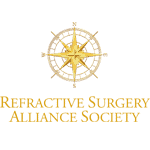LASIK Cape Town, SOUTH AFRICA
Blade-Free LASIK in Cape Town – Trusted Since 1993
Looking for LASIK surgery in Cape Town?
At Tygervalley Eye & Laser Clinic, we’ve been helping patients achieve crystal-clear vision since 1993 – the same year we performed Cape Town’s very first refractive eye laser surgery.
We use the latest Schwind AMARIS laser technology to offer blade-free LASIK, with industry-leading precision, safety, and comfort.
✅ Safe, fast, and pain-free
✅ Treats nearsightedness, farsightedness & astigmatism
✅ 30+ years of trusted experience
Book your FREE LASIK suitability screening today.
📍 Conveniently located in Tygervalley, V&A Waterfront & Paarl.


What is Eye Laser Vision Correction?
Custom Laser Eye Surgery in Cape Town Using Schwind AMARIS Technology
Since 1993, Tygervalley Eye & Laser Clinic has been a leader in refractive laser eye surgery in Cape Town. We specialise in personalised laser vision correction, using advanced Schwind AMARIS excimer laser technology to ensure precise, data-driven results tailored to each individual eye.
Unlike traditional laser procedures, which apply the same treatment to identical prescriptions, individualised laser eye surgery takes into account each person’s unique corneal shape, thickness, and higher-order aberrations. This allows for a customised correction profile – much like a fingerprint – ensuring greater accuracy and improved visual outcomes.
What Is Wavefront-Guided Laser Vision Correction?
Our approach uses wavefront-based technology to map the entire optical system in detail. This high-resolution analysis identifies even the smallest irregularities in the cornea, many of which are not detectable using standard methods.
We use a combination of:
-
Pentacam corneal topography
-
Schwind Peramis & MS-39 analyzers
-
Wavefront-guided optical fingerprinting
This data is transferred directly to the Schwind AMARIS laser system, enabling correction that is up to 25 times more precise than traditional glasses or contact lenses.
Conditions Treated with Personalised Laser Eye Surgery
Our individualised laser treatment is effective for correcting:
-
Myopia (short-sightedness)
-
Hyperopia (far-sightedness)
-
Astigmatism
-
Visual aberrations due to corneal irregularities
-
Presbyopia-related refractive errors
Why Choose Us?
-
✅ Over 30 years of surgical experience
-
✅ One of the first clinics in South Africa to perform refractive eye laser surgery
-
✅ Access to world-class diagnostic and laser platforms
-
✅ Clinics in Tygervalley, Paarl, and V&A Waterfront Cape Town
Book Your Personalised Suitability Assessment
To find out if you’re a candidate for wavefront-guided laser vision correction, contact one of our clinics to schedule a full ophthalmic assessment.
What to Expect During Trans PRK Laser Eye Surgery
Trans PRK (Transepithelial Photorefractive Keratectomy) is a bladeless, surface-based laser eye surgery that reshapes the cornea to improve vision. It’s a safe and effective alternative for patients who may not be eligible for LASIK.
Here’s what to expect during each step of the procedure:
1. Pre-Surgical Corneal Mapping and Preparation
Your ophthalmologist will begin by performing a detailed scan of the surface of your cornea. This includes measuring:
-
Corneal thickness
-
Corneal curvature
-
Surface irregularities
These measurements are used to program the excimer laser for a customised treatment. Before the procedure, your eye will be numbed using anaesthetic eye drops, and a small eyelid holder will be placed to keep you from blinking.
2. Corneal Reshaping with the Excimer Laser
During the procedure, you’ll be asked to look at a target light to keep your eye steady. The excimer laser emits a cool ultraviolet beam that precisely removes microscopic layers of corneal tissue – reshaping the surface of the eye.
This improves how light is focused onto the retina, resulting in clearer, sharper vision.
The laser can also treat astigmatism by smoothing uneven areas of the cornea into a more regular shape.
3. Bandage Contact Lens and Postoperative Care
Once the laser reshaping is complete, a temporary bandage contact lens will be placed on the treated eye to protect the surface during healing. You’ll be prescribed:
-
Antibiotic eye drops (for a few days)
-
Anti-inflammatory eye drops (for several weeks)
These medications reduce the risk of infection and support tissue regeneration.
4. Recovery and Visual Results After Trans PRK
Immediately after surgery, you’ll rest briefly at the clinic and then return home with the help of a driver. You may experience mild discomfort, scratchiness, or light sensitivity for a few days. Your doctor may prescribe pain relief if needed.
-
Re-epithelialization (regrowth of the corneal surface) usually occurs by day 3, at which point the bandage lens may be removed.
-
Some patients achieve 20/40 or 20/20 vision within 3–5 days, while others may take up to 6 weeks for full visual recovery.
-
Most patients are able to drive within 7 days of surgery.
It’s important to note that Trans PRK recovery is longer than LASIK, but the long-term results are just as effective, especially for patients with thinner corneas or specific corneal conditions.
Is Trans PRK Right for You?
Trans PRK is often recommended for individuals who are not ideal candidates for LASIK, such as those with:
-
Thin or irregular corneas
-
Dry eye concerns
-
Active lifestyles where flapless surgery is preferred
To determine your suitability, a full ophthalmic assessment is required at one of our clinics in Tygervalley, V&A Waterfront, or Paarl.
Ideal candidates for PRK include:
– Patients who are nearsighted, slightly farsighted, and/or have astigmatism
– Patients who have a thin cornea and do not qualify for Lasik surgery
– Patients who are 18 or older, or have had a stable prescription for 2+ years, and are in otherwise good health
– Patients who have no current eye diseases
– Patients who wish to reduce or eliminate their dependence on glasses or contact lenses
PRK Recovery
Immediately after PRK, the doctor will have you rest for a bit, then you can go home (someone else must drive). At home, you should relax for at least a few hours. The doctor will prescribe medication for any postoperative pain that includes scratchiness and lasts a few days. Most doctors advise a couple of days of rest. By about the third day after surgery re-epithelialization has occurred, so the doctor may remove the contact lenses. Vision will probably not be perfect immediately: in three days many patients do have 20/40 or even 20/20 vision, but others take longer – around 6 weeks – to reach their final result. Usually people can drive in about a week after surgery. These recovery times are significantly longer than with Lasik.
For further information about advanced eye laser PRK surgery please contact The Tygervalley Eye & Laser Centre on 021 9100 300 or info@eyelaserclinic.co.za







